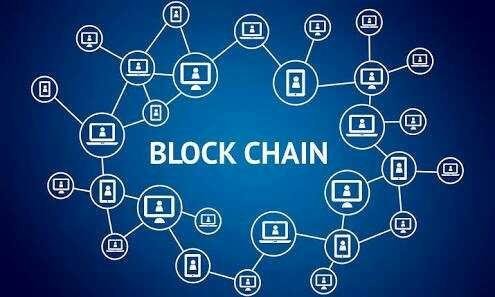Block chain explained in the simplest way
I have a confession to make; "the first time I heard about Bitcoin, I really just passed it off as another scam." I remember watching a Youtube video of a Ugandan guy who was sharing about the wonders of Bitcoin.He arouse my curiosity but i passed it off.
Now, after an introduction to steemit, I've tried to know as much as possible. I have some knowledge about block chain that i can share in the simplest way so that its easiet for you to grasp

Today we shall try to keep this as simple as possible. And the only way to keep it that simple is to keep it long, for lack of time.
Before anything, we must appreciate that we live in a networked world. The world is made up of different networks. You have your school network. You have a sex network. You have a social network. The electricity grid is a network. Mobile Money is a network. Money itself is a network. Roads, Religions, Corporations, all these are networks.
Compared to all the other species, human beings are the only ones that are networked over different things. Uganda as a country for example is a network. Your bank and all its customers are a network. Human beings cooperate across genetic boundaries.
Because you have a network, it means you ought to have some control of sorts. In the school network, you had teachers, you had prefects and you formed the disciplinary committee. In the Banking network, you have your bank, but you also have the Central bank.
The reason networks must be controlled is because at some point, there will be some people trying to cheat the system. In a network, you have everyone contributing resources. You want to make sure that those giving more resources to the network get paid more, those who are consuming resources are paying for them, you want to know who's cheating, stop and punish them.
In the past, networks were run by individuals. These individuals became Kings, Chiefs, Emperors and Tyrants.
In other areas, these networks have been run by elites or aristocracies. Networks have also been run by democracies, sort of mobs. We also have networks run by companies, Facebook, Twitter, Uber.
Networks require some sort of governance system. In all the past cases, this governance system has been centralized. This is where BLOCK CHAINS come in.
For the first time Blockchains are introducing a fifth form of governance, completely decentralized. It is purely digital but should eventually include physical networks. Imagine for a moment that there is no central controller of a network yet you still have checks and balances within the network. That is Blockchain. That you could still buy and sell land without having a Ministry of Lands. And that the process would be efficient, no cheats, no fake land titles.
In a Blockchain system, you have a piece of code running in the cloud that says we need a certain resource. This resource could be computational power or storage.
If it is storage, the code says everyone who contributes storage into this network will get paid and anyone who takes storage out of it will get it and will have to pay.
So you go ahead and say, we are going to keep track of all these storage transactions online of who is giving storage, who is taking out storage. You are now having debits and credits. In accounting, a track of these debits and credits would be called a ledger. In our system, these ledger is what we call a Blockchain. Here is what is interesting about Blockchain, everybody in the system keeps a copy of this ledger. And this is a way of authentic ledger must read the same as A or B's copy.
Blockchain is this piece of code in the cloud that nobody owns, that is having these checks and balances, punishing cheats and those who break the rules and rewarding those who contribute resources to it.
Blockchain is an elimination of the centralized gatekeepers and all the middlemen. One of the most popular applications of this has been in cryptocurrencies. Bitcoin for example is removing your Visa card, your mastercard, your banker. Bitcoin is also making it possible to perform all these micro transactions. Say I own 0.00002 bitcoins. This is currently not possible in the current system. You can't send these low amounts to a friend in Kenya. Again, you can't transfer all these huge funds. Bitcoin is taking away the privilege of printing money from bankers.
As Naval Ravikant says; "Blockchains are a new invention that allows meritorious participants in an open network to govern without a ruler and without money. They are merit-based, tamper-proof, ooen, voting systems."
Merit can mean different things in a blockchain system. It could mean security, computation power, prediction, attention, bandwidth, power, storage, distribution, content, name it all.
Ravikant continues; "blockchains give us new ways to govern networks. For banking. For voting. For search. For social media. For phone and energy grids. Networks governed without Kings, priests, elites, corporations and mobs. Networks governed by anyone with merit to the network."
The beauty here is that blockchains open us to a world of many possibilities. We are just at the start of the grand possibilities. That we could have a blockchain voting system, rigging proof and no contestation on the winner.
To bet against Blockchains is to bet against the internet. And to bet against the internet is to bet against the future!
To get upvote from @wafrica, the post needs at least 300 characters! Please describe your work in detail ;-)
Block chain knowledge has been simplified for me.
Thankful;)